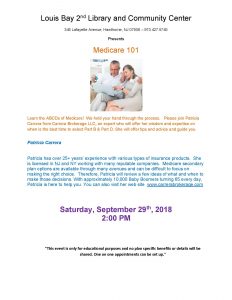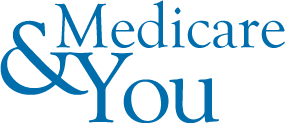Last week, bipartisan, bicameral legislation was introduced to ensure all Medicare beneficiaries who spend three days or more in a hospital can access post-acute care in a Skilled Nursing Facility (SNF) when they need it. Currently, Medicare can deny SNF coverage following a hospital stay classified as outpatient observation rather than inpatient. The Improving Access to Medicare Coverage Act of 2019 (H.R. 1682/ S.753) would protect beneficiaries from surprise bills for skilled nursing care by counting time they spend in observation status toward Medicare’s three-day stay requirement. Are you hospital inpatient or outpatient?
- Join a Medicare drug plan when you’re first eligible.You won’t have to pay a penalty, even if you’ve never had prescription drug coverage before.
- Don’t go 63 days or more in a row without a Medicare drug plan or other creditable drug coverage.Creditable prescription drug coverage could include drug coverage from a current or former employer or union, TRICARE, Indian Health Service, the Department of Veterans Affairs, or health insurance coverage. Your plan must tell you each year if your drug coverage is creditable coverage. They may send you this information in a letter, or draw your attention to it in a newsletter or other piece of correspondence. Keep this information because you may need it if you join a Medicare drug plan later.
- Tell your plan about any drug coverage you had if they ask about it.When you join a Medicare drug plan, the plan will check to see if you had creditable drug coverage for 63 days or more in a row. If the plan believes you didn’t, it will send you a letter with a form asking about any drug coverage you had. Complete the form and return it to your drug plan by the deadline in the letter. If you don’t tell the plan about your creditable drug coverage, you may have to pay a penalty.


